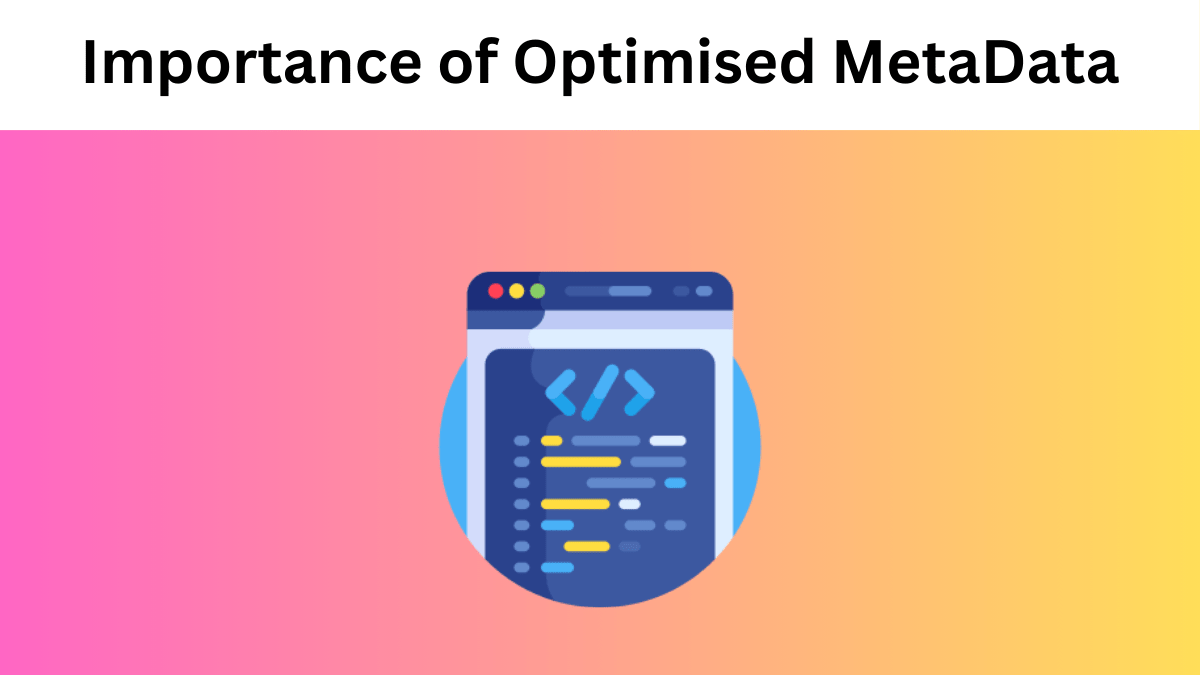The importance of metadata is overlooked as a crucial element in website data, when optimised correctly can significantly enhance the ranking and engagement of your website when indexed by search engines.
What is Metadata?
Metadata is any information provided about the content of a webpage, for SEO strategy meta titles, descriptions, alt text, and header tags should be present and updated. These elements allow search engines to index and understand your content therefore increasing your ranking presence in the search engine results.
Why is Optimised Metadata Important?
1. Improved rankings
Search engines use metadata to determine how relevant each webpage is to a user’s search keyword and intent. Optimizing your site’s metadata gives you a greater chance of ranking higher for more relevant keywords being searched by your target audience.
2. Enhanced CTR
Regardless of the ranking strength of your webpage, it is the use of metadata that is the deciding factor as to whether or not a user will decide to click through to your website. By ensuring that your meta title and description detail your offering and value then you should see an uplift in CTR towards your site.
3. Improved user experience
User experience must not be ignored; your webpage must match the user’s intent so that they have a better experience and can find the information they require from you. If the information they find is irrelevant, this will increase the bounce rate and decrease user engagement.
4. Social sharing
Your content will potentially be shared across social media, if so your metadata will be used to create rich snippets. These snippets will obtain your meta title, description, and image from your webpage so you must ensure that the content is informative to users.
Key Elements of Metadata and How to Optimise Them
1. Meta titles
Meta titles are the most important elements of managing your web pages’ on-page SEO. They are the first thing a user sees when scrolling through search results, acting as a headline to emphasize your content.
Optimising Meta Titles:
- Use a specific primary keyword near the start of the meta title.
- Your meta titles should be under 60 characters to prevent any truncation.
- Your meta titles must be clear whilst remaining appealing to obtain a click from potential users.
2. Meta descriptions
Meta descriptions act as a summary of your webpages and their content, they do not affect rankings but can positively impact CTR.
Optimising Meta Descriptions:
- Any keywords that you include must be relevant and not too many primary keywords used.
- Your meta descriptions should be under 160 characters to prevent any truncation.
- Use a CTA in your meta description to encourage users to click through to your webpage.
3. Header tags (H1, H2, H3)
Header tags provide structure to your site content allowing users and search engines to find it easier to understand.
Optimising Header Tags:
- Make sure that a primary keyword is included in the H1 tag and that your secondary keywords are used in the H2 and H3 tags.
- Used correctly header tags will create a strong page structure and enhanced readability.
- Each header must accurately reflect the webpage’s content to reduce the page’s bounce rate.
4. Image alt text
Alt text is used to better describe the images across your website, it is important to include this information for search engines to better understand the image content.
Tips for Optimising Alt Text:
- The image should be described using any relevant keywords.
- The alt text must remain should be under 125 characters.
- Make the alt text natural using keywords where they are relevant.
Metadata optimisation is an important part of any on-page SEO strategy, you must populate and keep updated your meta titles, descriptions, and header tags so that users are informed of your content. This will result in improved search engine rankings for your web pages, an uplift in CTR, and an improved overall user experience.


Comments are closed